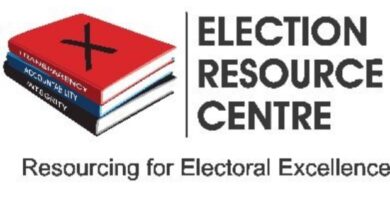MPs call for greater financial inclusion, innovation hubs to boost youth entrepreneurship

Peter Moyo
Harare – Parliament has called for increased financial support for youth entrepreneurs and the creation of innovation hubs to drive economic development and industrial growth. The discussions highlighted the need to provide affordable capital, skills training, and market access to help young people start and grow their businesses.
During the parliamentary session, several MPs emphasized that limited access to finance remains the biggest barrier preventing youth from contributing to Zimbabwe’s economic growth. Hon. Nyakuvedzwa argued that without financial inclusion, young entrepreneurs cannot expand their businesses or invest in new ventures.
“We need a system where the government guarantees loans for young people who lack collateral. Without this support, many promising entrepreneurs will remain locked out of the economy,” she said.
MPs called on the Ministry of Finance to increase funding for the Empower Bank, a financial institution dedicated to supporting youth-led enterprises. However, there were concerns that the bank’s current lending policies are too restrictive and discourage young people, particularly those in rural areas, from applying.
Hon. Chaimvura stressed the need to simplify loan processes and make funding more accessible.
“Most youths in rural areas do not even know how to approach a bank or apply for funding. We must bridge this gap by educating them and offering accessible financing options,” she said.
In addition to financing, MPs also discussed the importance of innovation hubs and value addition in local industries. Hon. Kangausaru proposed establishing industrial parks where young entrepreneurs can access modern equipment, mentorship, and markets to grow their businesses.
“We must invest in industrial hubs where young people can manufacture goods, add value to raw materials, and scale their innovations,” Kangausaru said. He pointed to successful models in countries like Rwanda and South Africa, where youth-led innovation is driving economic growth.
The discussions also highlighted value addition as a key strategy for economic transformation. MPs argued that young people should be empowered to process local resources instead of exporting raw materials. Examples included supporting youth to create furniture from Zimbabwe’s timber resources and refining gold into finished jewelry.
Hon. Nyakuvedzwa emphasized that youth participation in value addition could reduce unemployment and strengthen Zimbabwe’s position in global markets.
“Instead of exporting raw materials, let us empower our youth to add value locally—whether it’s producing finished goods from our minerals or processing agricultural products,” she said.
Concerns were also raised about the slow pace of government initiatives supporting youth businesses. Hon. Murombedzi criticized the bureaucracy surrounding public programs and warned that without clear timelines and oversight, many initiatives would fail to deliver.
“We cannot keep promising youth economic empowerment while dragging our feet on implementation. We need action, not just words,” he said.
To accelerate progress, MPs proposed tax incentives for private companies that invest in youth-led businesses and urged the government to cut red tape in business registration and licensing processes.
The Ministry of Youth was also called upon to revamp vocational training programs to equip young people with skills relevant to modern industries. MPs stressed the importance of digital literacy, advanced manufacturing, and agribusiness training as essential areas for future economic growth.
The debate concluded with strong calls for immediate action to fund youth enterprises, establish innovation hubs, and ensure rural youth have equal opportunities to participate in Zimbabwe’s economic transformation. Parliament is expected to table formal recommendations in the coming weeks, focusing on financial reforms, industrial development, and youth entrepreneurship support.




